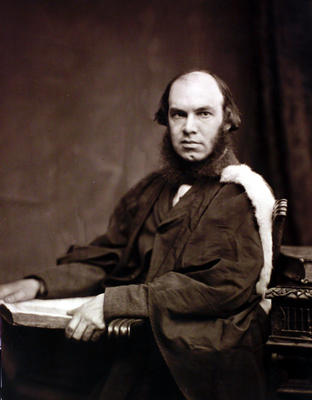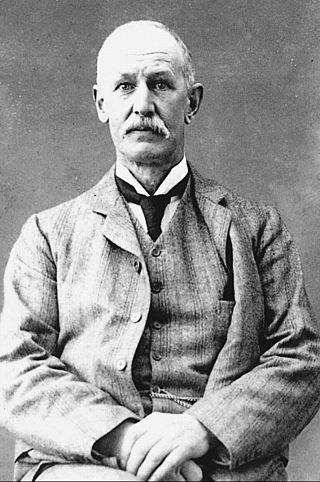Related Research Articles

Rev Henry Calderwood FRSE LLD was a Scottish minister and philosopher.

Edward Caird was a Scottish philosopher. He was a holder of LLD, DCL, and DLitt.

Frederick Sydney Dainton, Baron Dainton, Kt, FRS, FRSE was a British academic chemist and university administrator.

Sir George Clerk of Pennycuik, 6th Baronet was a Scottish politician who served as the Tory MP for Edinburghshire, Stamford and Dover.

Frederick Orpen Bower FRSE FRS was an English botanist. He was elected a Fellow of the Royal Society in 1891. He was awarded the Gold Medal of the Linnean Society in 1909 and the Darwin Medal of the Royal Society in 1938. He was president of the British Association in 1929–1930.

Harold Garnet Callan FRS FRSE, known as Mick Callan, was an English zoologist and cytologist. He is especially remembered for his work on Lampbrush chromosomes.
Maurice Jules Gaston Corneille Caullery was a French biologist.
Emilio Coia LLD was a Scottish artist who made his name in the early 1930s as a widely published caricaturist.

Samuel Henry Butcher DCL LLD was an Anglo-Irish classical scholar and politician.

George Chrystal FRSE FRS was a Scottish mathematician. He is primarily known for his books on algebra and his studies of seiches which earned him a Gold Medal from the Royal Society of London that was confirmed shortly after his death.

Walter Biggar Blaikie FRSE DL LLD was a Scottish civil engineer, printer, historian and astronomer.

Sir John Clerk of Pennycuik, 5th Baronet FRSE (1736–1798) was a Royal Navy officer. Active in the Philosophical Society of Edinburgh, he thereby became a founder fellow of the Royal Society of Edinburgh upon its formation in 1783.
William Alexander Francis Balfour-Browne FRSE FZS FLS PRMS (1874–1967), known as Frank, was an English entomologist who specialised in Coleoptera, especially Dytiscidae.
Sir John William Atwell CBE PRSE FREng FIMechE was a Scottish engineer

Daniel John Cunningham M.D., D.C.L., LL. D. F.R.S., F.R.S.E. F.R.A.I. was a Scottish physician, zoologist, and anatomist, famous for Cunningham's Text-book of Anatomy and Cunningham's Manual of Practical Anatomy.
Robert Crowe Curran FRCP FRCPath was a British pathologist, Leith Professor of Pathology, Birmingham University, 1966–1986.
James Burgess CIE FRSE FRGS MRAS LLD, was the founder of The Indian Antiquary in 1872 and an important archaeologist of India in the 19th century.
Dr David Clouston FRSE was a Scottish agriculturalist, horticulturalist and author. He served as Agricultural Advisor to India from 1923 to 1929. His expertise lay especially in the subject of grasses.
Prof William Stuart Mcrae Craig FRSE FRCP FRCPE was an English physician and medical author. He was a pioneer in the field of community and preventive paediatrics. He was author of the book Care of the Newly Born Infant.
Ernest Geoffrey Cullwick was a British pioneer of electromagnetism in relation to its effects upon atomic particles. He served as Director of Electrical Engineering for the Royal Canadian Navy and Director of the Electrical Research Division of the Defense Research Board of Canada.
References
- ↑ C D Waterston; A Macmillan Shearer (July 2006). Former Fellows of The Royal Society of Edinburgh, 1783–2002: Part 1 (A–J) (PDF). Royal Society of Edinburgh. ISBN 090219884X. Archived from the original (PDF) on 24 January 2013. Retrieved 18 September 2015.
- ↑ C D Waterston; A Macmillan Shearer (July 2006). Former Fellows of The Royal Society of Edinburgh, 1783–2002: Part 1 (A–J) (PDF). Royal Society of Edinburgh. ISBN 090219884X. Archived from the original (PDF) on 24 January 2013. Retrieved 18 September 2015.
- ↑ "Catalog of Copyright Entries. Third Series: 1957". 1958.